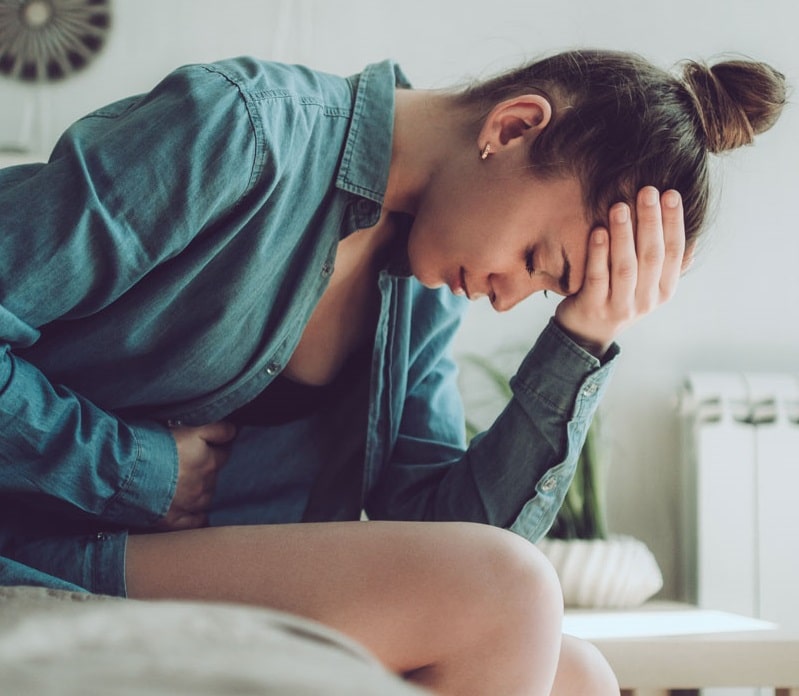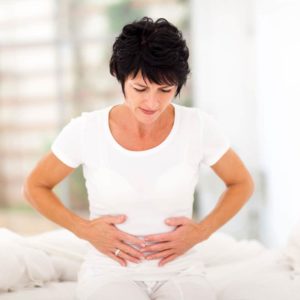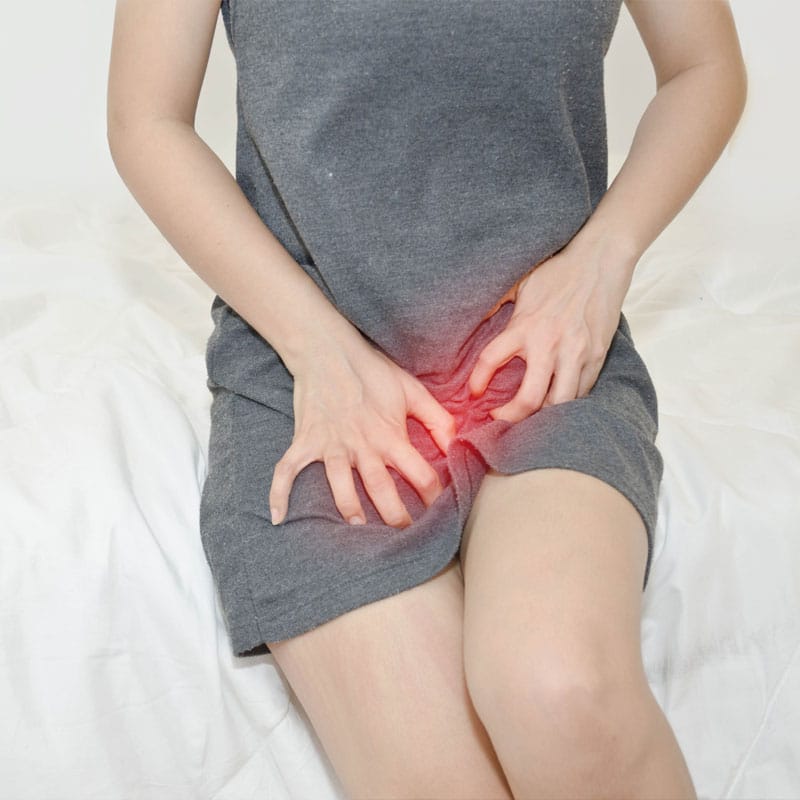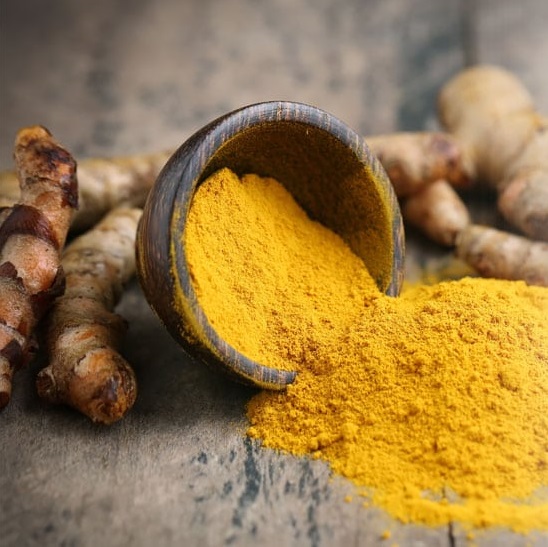Polycystic ovary syndrome, or PCOS, is a hormone disorder affecting women who are of reproductive age and beyond. It causes the body to produce too many male sex hormones, which causes a plethora of issues. Women suffering from polycystic ovary syndrome experience irregular menstrual cycles, imbalanced hormones, prolonged heavy periods, and an increased risk of infertility. Additionally, PCOS causes cysts to form in the ovaries. Many people are surprised to learn that there are four types of PCOS. Women and their doctors must know which type of PCOS they have, as this knowledge can help ensure proper treatment and minimize the symptoms.
Polycystic ovary syndrome, PCOS, is one of the leading causes of infertility in women. The CDC reports that between 6 and 12 percent of reproductive-aged females (approximately 5 million women) suffer from this common condition. We will dig in and discuss how menopause affects polycystic ovary syndrome and how we can help get relief from PCOS symptoms.
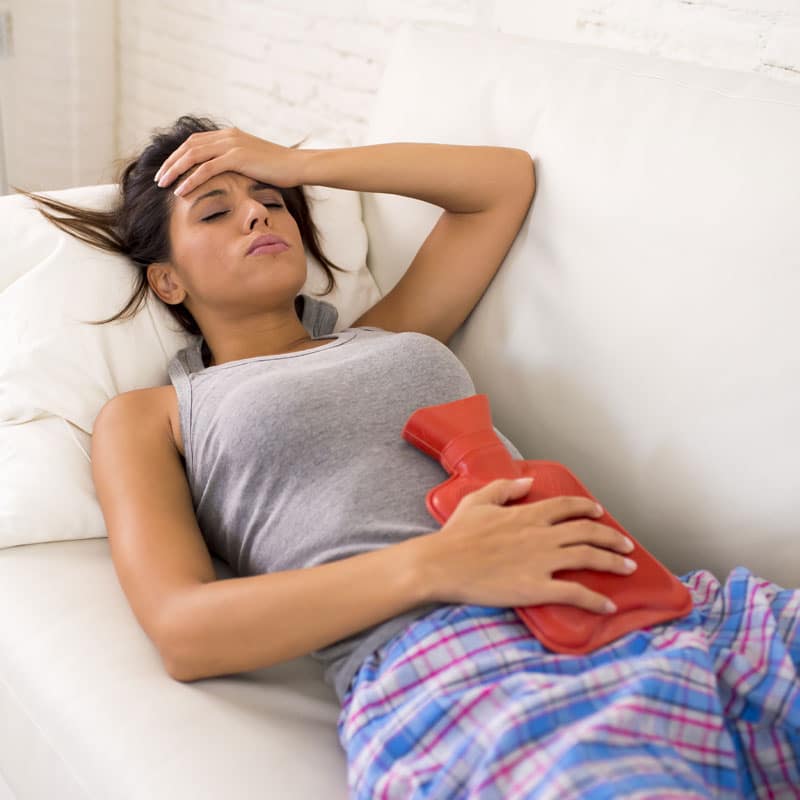
Symptoms of PCOS
PCOS typically occurs during puberty; however, it can occur later in life in response to excess weight gain. The symptoms of PCOS include:
- Excess androgen—Androgen, which is a male hormone, can become elevated in women with PCOS. Excess androgen can cause male pattern baldness, severe acne, and excess body and facial hair.
- Irregular periods—A woman who has PCOS may experience unusual menstrual cycles. Her period may be abnormally heavy, prolonged, irregular, or infrequent. Women with PCOS may have less frequent periods with over 35 days between periods.
- Low progesterone—Progesterone is a female hormone that helps regulate the menstrual cycle and maintain pregnancy. Those with PCOS are at an increased risk of infertility and miscarriage due to low progesterone levels.
- Polycystic ovaries—Polycystic ovaries become enlarged and have follicles surrounding the woman’s eggs stored in the ovaries. This enlargement and follicles can prevent the ovaries from functioning correctly, resulting in an increased risk of infertility.
Causes of Polycystic Ovary Syndrome
Although the exact cause of polycystic ovary syndrome is unknown, researchers believe that several factors may play a role in the development of PCOS, including:
- Excess androgen—The ovaries may produce large amounts of androgen, which can cause excess hair growth and acne.
- Excess insulin—Insulin is produced in the pancreas and helps convert the foods you eat into energy. When the body produces too much insulin, androgen production can increase, leading to ovulation problems.
- Genetics—Researchers believe specific genes link to polycystic ovary syndrome; however, they need to conduct more studies.
- Inflammation—Systemic inflammation can stimulate the ovaries to produce excess androgens, leading to PCOS.
Types of PCOS
There are four different types of polycystic ovary syndrome. Each one has a different cause and a different set of symptoms. Let’s take a look at each one and help you determine which type of PCOS you have and the best way to relieve your PCOS symptoms.
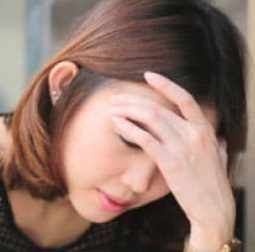
1. Adrenal PCOS
Adrenal PCOS occurs when you have an abnormal stress response. Typically, when you are under chronic stress, your DHEA-S (a type of androgen created by the adrenal glands) becomes elevated. Unlike testosterone, DHEA-S levels are typically not tested, which is why many women are improperly diagnosed with a different type of PCOS. A doctor who understands the various types of PCOS will run the necessary tests to determine the cause of your polycystic ovary syndrome. If it is determined that you are suffering from Adrenal PCOS, some recommendations to help heal the adrenal system and reverse PCOS include:
- Caffeine—Caffeine found in chocolate, coffee, soda, and tea can cause your ovaries to produce more male sex hormones than female sex hormones. Limiting the amount of caffeine you consume or eliminating caffeine from your diet can help your body heal and rebalance your hormones, which will relieve the symptoms of PCOS and even reverse it.
- Exercise—Exercise is good for the body; however, exercising too often or hard can harm it. High-intensity and excessive exercise can put too much stress on the adrenal glands, preventing them from functioning correctly. When this occurs, DHEA-S levels can become elevated. Getting 20 to 30 minutes of moderate exercise daily can help balance your hormones.
- Sleep—To support your recovery from PCOS, you must get at least 7 to 9 hours of sleep each night. Talk with your functional medicine doctor if you are having trouble sleeping or staying asleep. They will be able to determine what is causing your insomnia and offer advice on how to get the sleep your body needs.
- Stress—Reduce stress by practicing stress relief activities such as mindful meditation, journaling, yoga, and deep breathing exercises. These techniques help balance hormones and strengthen adrenal glands.
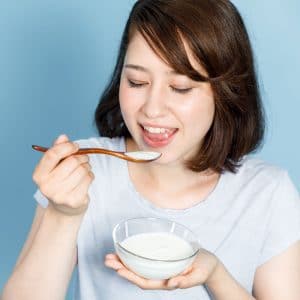
- Supplements—Specific supplements nourish the adrenal glands and help the body deal with stress and recover from its effects. Incorporating foods rich in vitamins and minerals and taking supplements can improve your health. Your adrenal glands need vitamin B5, vitamin C, magnesium, licorice, and rhodiola.
2. Inflammatory PCOS
Did you know that chronic inflammation can cause your ovaries to produce excessive amounts of testosterone, which can lead to PCOS? The symptoms of inflammatory PCOS include joint pain, headaches, skin issues, unexplained fatigue, and bowel problems. Individuals suffering from inflammatory PCOS may have high inflammatory markers when doctors run blood tests.
If you are suffering from inflammatory PCOS, there are several things you can do to ease your symptoms and reverse the inflammation that is responsible for your inflammatory PCOS, including:
- Gut Health – Leaky gut and other gut problems can lead to systemic inflammation that can impact your body’s ability to make hormones. Furthermore, excess inflammation can lead to hormonal imbalances. Repairing your gut by incorporating probiotic supplements and fermented foods in your diet increases the number of beneficial bacteria in the body to promote good gut health.
- Food Sensitivities – Food sensitivities can cause inflammation throughout your body. Oftentimes, it can be challenging to determine which foods are responsible for causing your inflammation. One of the best ways to solve this mystery is to follow an elimination diet. Soon, you can tell which foods are causing your issues.
- Natural Relief—Several natural anti-inflammatories can help support your body when you have inflammatory PCOS. Adding vitamin C, E, and other antioxidants helps decrease inflammation and detoxify the body. In addition, incorporating omega-3 fatty acids and turmeric into your diet can help relieve many of the symptoms of PCOS.
3. Insulin Resistance PCOS
Approximately 70 percent of all PCOS cases are due to insulin resistance. Insulin resistance occurs when the body cannot properly use insulin, resulting in high glucose levels. The body tries to regulate glucose levels by producing more insulin. Increased insulin levels can lead to higher production of male sex hormones.
Individuals suffering from insulin-resistant PCOS may struggle with weight gain. They tend to hold their weight in their abdominal region. Other symptoms of insulin resistance polycystic ovary syndrome include brain fog, fatigue, and sugar cravings.
To help relieve insulin-resistant PCOS, you must try to improve your insulin sensitivity with the following:

- Exercise—Daily 30 minutes of moderate exercise helps your body utilize glucose effectively and improves insulin sensitivity.
- Sleep—When you sleep, your body produces most of the hormones needed for optimal health. Practice healthy sleep habits to help you get the recommended 7 to 9 hours of sleep.
- Stress Reduction—Chronic stress leads to a plethora of health issues, including insulin resistance, type 2 diabetes, obesity, and hormone imbalances. Practicing stress relief techniques like yoga, journaling, meditation, and tai chi can help reduce stress and the symptoms associated with chronic stress.
- Sugar Consumption—Excess sugar increases inflammation, disrupts hormones, and causes weight gain. Reducing sugar consumption can help reduce insulin resistance and may help reduce PCOS symptoms.
4. Post-Pill PCOS
Post-pill PCOS occurs when a woman stops taking oral contraceptives. Specifically oral contraceptives that use synthetic progestins like Yasmin, Yaz, and Ginet. When a woman stops taking this type of birth control pill, there is a natural surge in the production of androgens (male sex hormones). Typically, a woman will experience this type of PCOS about three to six months after stopping their birth control pills. There are certain things you can do to help with post-pill polycystic ovarian syndrome, including:
- Patience—Healing takes time, so be patient and remember that this condition is temporary. When you make healthy lifestyle choices, your body’s innate healing will occur, your hormones will rebalance, and the symptoms of PCOS will ease.
- Sleep—Sleep disorders like obstructive sleep apnea and daytime sleepiness are common in women suffering from PCOS. Sleep disruptions and lack of sleep can prevent the body from making the hormones it needs for optimal health.
- Stress Relief—Chronic stress causes the adrenal glands to pump out cortisol, which in turn causes the body to produce more androgens. Getting your stress levels under control isn’t easy; however, several techniques can help lower them and balance your hormones. Stress relief techniques like cognitive behavioral therapy, mindful meditation, and group therapy can help reduce cortisol levels and rebalance hormones.
- Supplements—Several supplements and herbs can support ovulation and help rebalance your sex hormones. Talk with your practitioner to see if incorporating supplements are helpful: magnesium, zinc, vitamin B6, and vitamin C. In addition to this, peony and chaste tree may help decrease male sex hormones.

Potential Complications of PCOS
Polycystic Ovary Syndrome can affect all areas of the body. Women who have polycystic ovary syndrome can experience numerous complications, including:
- Abnormal uterine bleeding
- Anxiety
- Depression
- Eating disorders
- Endometrial cancer
- Gestational diabetes
- Infertility
- Metabolic syndrome is a group of conditions that include high triglycerides or cholesterol levels, high blood pressure, and high sugar levels. Metabolic Syndrome increases the risk of heart disease.
- Miscarriage
- Nonalcoholic steatohepatitis – fat accumulating in the liver causes liver inflammation.
- Obesity
- Prediabetes
- Pregnancy-induced hypertension
- Premature birth
- Type 2 diabetes
Polycystic Ovary Syndrome After Menopause
Women who suffer from polycystic ovary syndrome can experience symptoms during perimenopause and menopause. Many of the symptoms of PCOS are similar to menopausal symptoms. Some common symptoms experienced by women with PCOS and perimenopause include-
- Irregular periods which can affect fertility and cause a woman to become infertile
- Mood swings
- Sleep issues
- Thinning hair or unwanted hair growth
- Weight gain
Holistic Treatment for PCOS
PCOS is a complex hormone disorder with several different causes. If you are experiencing the symptoms of PCOS and are ready to find the root cause and begin working toward reversing PCOS, our functional medicine doctors can help rebalance your hormones.
Postmenopausal women with polycystic ovary syndrome need to maintain a healthy weight. Being overweight increases the risk of type 2 diabetes and cardiovascular disease. Our team of integrative practitioners will work with you to develop a diet and exercise program geared toward menopausal women with PCOS. Polycystic ovary syndrome and menopause can make it challenging to get a whole night’s sleep. Good sleep hygiene can help you get the rest your body needs. Good sleep hygiene includes turning electronics off a couple of hours before bedtime, sleeping at a fixed time every night, and creating a calm oasis in your bedroom.
Finally, hormone replacement therapy can help relieve many of the symptoms of menopause and PCOS. Your functional medicine practitioner will work with you to determine the best bioidentical hormone treatment program to combat the effects of PCOS.



